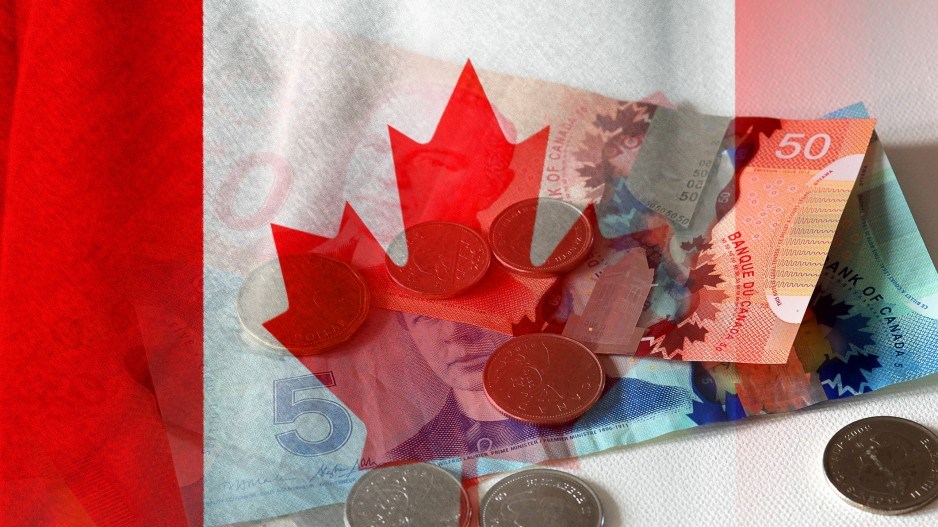At the start of 2023, when Research Co. and Glacier Media reviewed the perceptions of Canadians on financial issues, .
Only 35 per cent of Canadians rated the country’s economic conditions as “very good” or “good,” and 44 per cent expected the situation to worsen.
Six months later, we see some signs of recovery, with 41 per cent of Canadians saying the national economy is currently in “very good” or “good” shape, up six points since the start of the year.
Most regions in Canada feel the same way. Quebec leads on economic confidence at 45 per cent, followed by Saskatchewan and Manitoba (43 per cent), Atlantic Canada (42 per cent), British Columbia (also 42 per cent) and Ontario (41 per cent). The numbers are drastically lower in Alberta (30 per cent).
While this may be the start of a trend, it is important to note that a majority of Canadians (56 per cent) still see the economic conditions of the country as “poor” or “very poor” – a proportion that rises to 60 per cent among women and to 69 per cent among Conservative Party voters in the 2021 federal election.
A third of Canadians (32 per cent) believe the national economy will decline over the next six months, down 12 points since January. More than two in five (45 per cent, down seven points) foresee no change and 16 per cent (up three points) expect an improvement. This is another indicator where we see caution and not buoyancy.
A few days ago, Statistics Canada told us that the national inflation rate fell to . The country’s residents, it is fair to say, are not expecting an immediate impact. Sizable majorities believe the next six months will bring higher prices for groceries (79 per cent, down five points), gasoline (73 per cent, up six points) and a new car (66 per cent, up one point), while more than half predict higher costs for real estate (55 per cent, up 12 points) and a new television set (51 per cent, down three points).
In the first decade of this century, it was customary to see Canadians expressing concerns over rising fuel prices, but this feeling was rarely expressed in regard to trips to the supermarket. Now we have more than four in five Canadians aged 55 and over (86 per cent), British Columbians (84 per cent) and Albertans (82 per cent) who believe that feeding a family will be more expensive in the next six months.
Still, the biggest change since January when it comes to inflation is observed on real estate. A majority of Canadians expect higher costs, including a whopping 65 per cent of British Columbians and 58 per cent of those in the highest income bracket.
Certain financial concerns are no longer are prevalent.
Just under half of Canadians tell us that they have worried “frequently” or “occasionally” in the last two months about the safety of their savings (47 per cent, down five points) and the value of their investments (48 per cent, down four points). There is some stability on being concerned about unemployment affecting their household (34 per cent, down three points), being able to pay their mortgage or rent (also 34 per cent, unchanged) or their employer running into serious financial trouble (27 per cent, down two points).
The way in which Canadians feel about their own financial situation is stable, with 52 per cent (up one point) saying their personal finances are “very good” or “good,” and 47 per cent (down one point) deeming them “bad” or “very bad.” This time, Canadians aged 35 to 54 are less likely to have a positive view of their status (45 per cent) than their counterparts aged 18 to 34 (50 per cent) and aged 55 and over (60 per cent).
The positive momentum for the national economy did not bring a boost for the Bank of Canada governor or the prime minister. Only 34 per cent of Canadians (down one point) trust Tiff Macklem to do the right thing to help the economy. More than two in five (43 per cent, up one point) have confidence in Justin Trudeau, while a majority (51 per cent, down two points) do not. The fluctuations are similar for official Opposition leader Pierre Poilievre, with 36 per cent of Canadians (up three points) trusting the Conservative leader to manage finances and 48 per cent (up one point) distrusting him.
At the midway point of 2023, the views of Canadians on the national economy have improved, but there are no clear political winners or losers yet. Even as confidence is up across the country, the rating has not improved markedly for Trudeau or Poilievre. Not many Canadians are looking at the two main federal politicians as the engines of economic recovery, present or future.
Mario Canseco is president of Research Co.
Results are based on an online study conducted on June 26 to June 28, 2023, among 1,000 adults in Canada. The data has been statistically weighted according to Canadian census figures for age, gender and region. The margin of error – which measures sample variability – is plus or minus 3.1 percentage points, 19 times out of 20.




